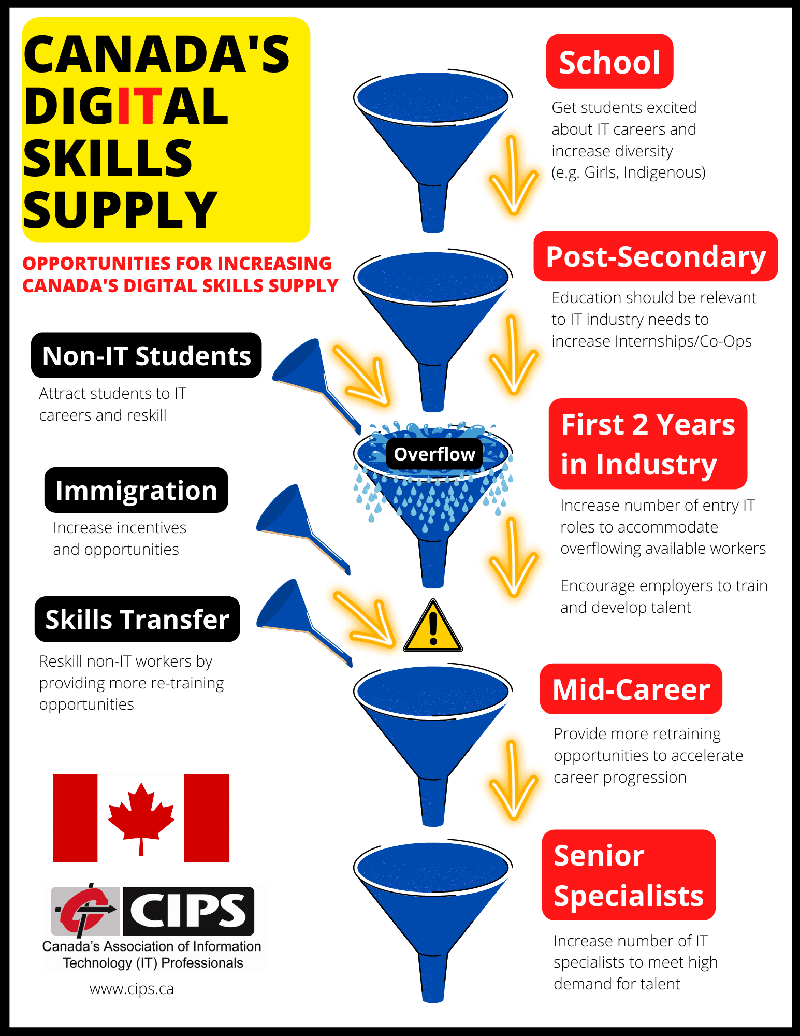Canada’s digital skills supply shortage is a critical issue. Here’s what educators, employers, and the government can do to find solutions.
Canada is experiencing a digital skills supply shortage, with about 70 percent of businesses in Canada struggling to obtain talent with the skills it requires. There’s currently significant demand for information technology(IT)-skilled talent, but the industry is facing low supply, especially in growing IT fields like cybersecurity and AI.
Eighty percent of businesses indicated that they require more talent with digital skills, with the majority experiencing difficulty hiring said talent. Cybersecurity is one of the top skills sought after, with 24 percent of employers indicating it as the top skill they’re looking for in employees. Sixty-eight percent of employers also indicated that they’re having issues hiring talent with the skills needed to expand their businesses.
One part of the solution is to increase the number of minorities in IT who are currently underemployed. A Deloitte Canada study found that roughly 1.7 million under-represented Canadians experience barriers to entering the IT workforce. By addressing these barriers, governments can help increase the available skilled talent. One example is Indigenous workers, who are systematically underrepresented, yet by 2030 they will be about seven percent of the available workforce.
Immigration provides another stream of skills supply, and therefore incentives and opportunities for more IT professionals to immigrate to Canada should be developed. This should be supported with mentorship programs, professional development training, skills assessments and career planning, and memberships in professional associations like CIPS, Canada’s Association of IT Professionals.
Ultimately increasing the digital skills supply starts with getting more elementary and high school students excited about careers in IT and increasing diversity in tech careers — such as including more women and Indigenous peoples in the workforce. Non-IT post-secondary students should also be encouraged to explore careers in IT and reskill as required.
Post-secondary education should be relevant to IT industry needs to help facilitate and create more internships and co-ops. Therefore, industry and academia should collaborate to better understand the digital skills that employers require.
Companies are starting to upskill their employees with more digital skills to address the skills shortage using internal solutions. These employees include non-IT workers and those in their mid-careers to help accelerate their career progression. However, employers should also be encouraged to create more entry-level IT roles to train and develop more talent internally.
Canada’s digital skills supply shortage is a critical issue affecting everyone. Educators, employers, associations, and the government all need to do their part to contribute solutions.




